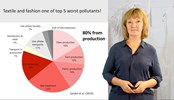Covid-19 crisis and the need for a global response
In an open letter in the Financial Times, Abiy Ahmed, Prime Minister of Ethiopia and the 2019 Nobel Peace prize laureate, points out that “Advanced economies are unveiling unprecedented economic stimulus packages. African countries, by contrast, lack the wherewithal to make similarly meaningful interventions. Yet if the virus is not defeated in Africa, it will only bounce back to the rest of the world. That is why the current strategy of uncoordinated country-specific measures, while understandable, is myopic, unsustainable and potentially counter-productive. A virus that ignores borders cannot be tackled successfully like this. We can defeat this invisible and vicious adversary — but only with global leadership.”
Martina Björkman Nyqvist, Director of the Misum ‘Human Capital’ platform, suggests taking advantage of the scientific knowledge we have available from previous pandemics in developing countries.
“The ongoing Covid-19 pandemic is on the rise in developing countries such as Africa and India. For example, the Ministry of Health in Uganda reported yesterday that Uganda had their 33rd confirmed case of coronavirus and India reported their 32nd deaths today," she says.
"Developing countries are implementing lockdowns of their societies, but it is challenging. How hard the pandemic will hit the poorer countries is of course still unclear, but SIDA and other international organizations can learn and act on knowledge we have from previous pandemics in Africa, such as Ebola."
Some of the obvious concerns are:
- The informal sector, which accounts for a large part of the total economic activity in these countries gets severely affected by pandemics
- The public health system is in most parts weak and this will highly impact the possibilities to fight an extensive pandemic.
- Access to clean water is scarce in slums and rural areas which will make it difficult keep hygiene and washing and hence, limits the possibilities to reduce the spread of infection.
- People live together in large, extended families, which can lead to the rapid spread of infection to the population at most risk.
- Large inequalities in who is mostly affected by the pandemic.
There are several suggested readings on some relevant literature on the Covid-19 impact on low-income countries, e.g. from the World Bank, as well as academic studies done on the Ebola outbreak in West Africa in 2014, which are worth considering when thinking about measures.
"These studies may help in understanding how the current Covid-19 pandemic will affect the poorer parts of the world," says Martina Björkman Nyqvist.



